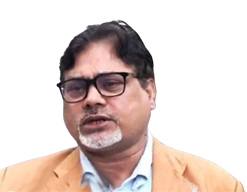
DR O P MISHRA
Director, National Centre for Seismology (NCS)
Dr. O.P. Mishra is an eminent geoscientist and seismologist with over three decades of distinguished service in applied geophysics, seismology, and disaster risk management. A recipient of the prestigious National Mineral Award (2008) and the A.S. Arya Award (2014), Dr. Mishra has made pioneering contributions to India's understanding of earthquake hazards and geodynamic processes.An internationally recognized expert, Dr. Mishra has been awarded a Visiting Professorship by the Japan Society for the Promotion of Science (JSPS) and is a life member of numerous scientific bodies including AGU (USA), SSA (USA), SSJ (Japan), JPGU (Japan), AOGS (Singapore), and several prestigious Indian academies and societies.
He holds an M.Sc. Tech in Applied Geophysics from IIT (ISM) Dhanbad, and earned his Ph.D. and D.Sc. in Seismology from the Geodynamics Research Centre, Ehime University, Japan. His professional journey spans leading roles at institutions such as the Geological Survey of India (1995–2014), the SAARC Disaster Management Centre, and collaborative work with the International Development Research Centre (IDRC), Canada.
Dr. Mishra has published over 150 research papers, books, and policy reports, covering a wide range of themes including earthquake forecasting, active fault mapping, microzonation, and interdisciplinary Earth system science. His contributions have informed national policies and risk reduction strategies.
